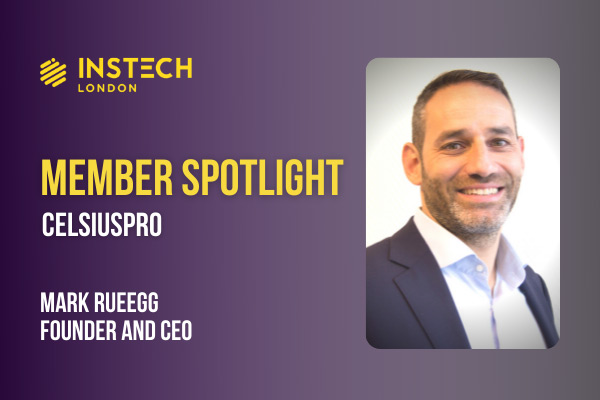Member Spotlight: CelsiusPro
Henry: Mark, what does CelsiusPro do and why did you start the company?
Mark: CelsiusPro works in three areas of parametric insurance: weather derivatives, consulting and white-label insurance technology solutions.
I previously worked for UBS, an investment bank, in foreign exchange and interest rate trading. I founded CelsiusPro in 2008 because climate change is a mega-trend affecting livelihoods and property, and transparent and efficient risk transfer products are needed. I discovered weather derivatives and decided to start there.
Henry: You’re the founder and CEO of CelsiusPro, what does that involve?
Mark: In my role as founder and CEO I am responsible for strategy, partnerships, but also advising in product structuring and negotiations.
Henry: How did CelsiusPro move from weather derivatives into offering consulting and insurance technology services?
Mark: We started by creating a platform to price, report and settle weather derivatives. We realised that most companies did not understand how to manage their weather risk, so we added consulting to our services. The focus was no longer just about pricing and risk transfer. We started earlier in the value chain with quantifying the risk and structuring a suitable product.
When parametric insurance grew in prominence in the insurance industry, we created platforms for insurers to offer parametric insurance. CelsiusPro evolved into an insurance technology provider. Our latest development is setting up an MGA (an organisation that underwrites insurance policies without holding capital (fully defined here)).
Henry: Why is CelsiusPro looking into setting up an MGA?
Mark: For parametric insurance, we are currently a technology provider. This means that for each insurance product we create we need to partner with an insurance company and a reinsurer. The MGA model will give us insurance capacity and insurance paper so we can engage directly with interested brokers.
Henry: What do you see as the benefits of parametric insurance?
Mark: The rules of a parametric insurance contract are clear. An independent third party is the judge, pricing is based on statistics and the policy is transparent. That is why it is scalable. Parametric insurance can easily be deployed anywhere on the globe where there are reliable data sets.
For insurance-linked securities investors, parametric insurance is attractive because any losses are clearly defined, quickly settled and do not need to be blocked as collateral during the months after an event.
Henry: Tell me about your collaborations with Aon and the World Bank.
Mark: We have had a partnership with Aon for a decade now. When Aon’s large clients want to understand their weather or natural catastrophe risk, we perform risk analysis and design a parametric product as the solution.
We structure government-level products for the World Bank across the globe. Two recent mandates included creating a risk model and structuring a parametric index for tropical cyclone risk in Mozambique and excess rainfall risk for Pacific Island nations.
Henry: Parametric insurance often faces challenges in distribution (selling insurance products). What has your experience been?
Mark: Distribution is a challenge. The end client needs to understand that a parametric policy exists and what its benefits and limitations are. We need to educate our end client, but also everybody else in the value chain. Most US brokers that we have come across do not have experience with parametric products. With smaller insurers there is also an education challenge. As parametric products become more popular, this will change but today there is still an education gap with brokers, insurers and clients.
Henry: What trends do you see in the global uptake of parametric insurance?
Mark: We see parametric natural catastrophe insurance as an area of growth, especially with hurricanes. Parametric hurricane insurance in the Atlantic Basin has increased considerably in the last two to three years, but the Asia-Pacific region is also an area to watch.
Henry: The company was started because of climate change. What climate issues are you looking at now?
Mark: The Task Force on Climate-related Financial Disclosures (TCFD) has created a framework for companies to report on how they are affected by climate risk. While ESG (environmental, social and governance) reporting is about what a company is doing to nature, TCFD reporting is about what nature is doing to a company. Since we have experience in weather and climate risk analysis, we can work with companies to quantify their physical climate risk and structure parametric insurance products.
Henry: Why did CelsiusPro join InsTech London as a corporate member, and what companies would you like to partner with?
Mark: CelsiusPro has built a credible product offering, but we have not been promoting it. Being part of InsTech London provides us with increased industry exposure.
We would like to connect with brokers and insurers that recognise that the future of insurance is digital and are interested in offering parametric natural catastrophe products to their clients.
For more information on CelsiusPro, go to celsiuspro.com


